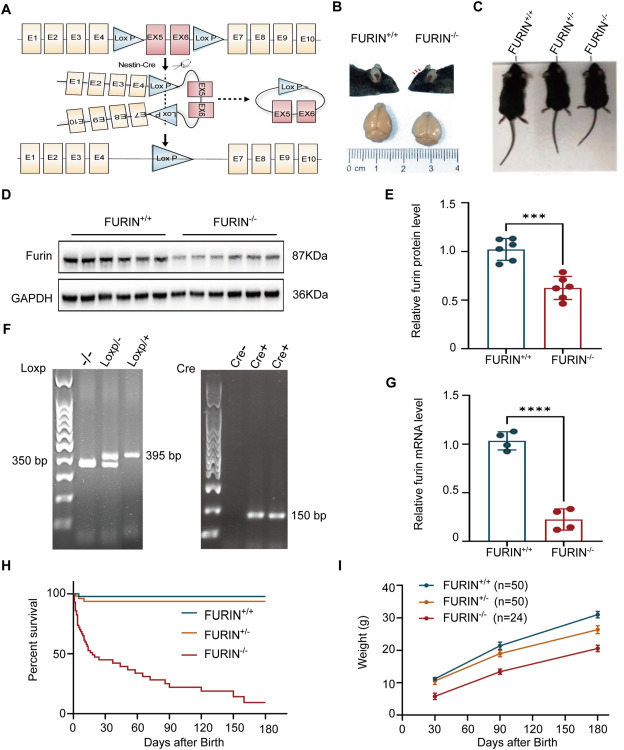
Cerebral furin deficiency causes hydrocephalus in mice


Furin is a pro-protein convertase that moves between the trans-Golgi network and cell surface in the secretory pathway. We have previously reported that cerebral overexpression of furin promotes cognitive functions in mice. Here, by generating the brain-specific furin conditional knockout (cKO) mice, we investigated the role of furin in brain development. We found that furin deficiency caused early death and growth retardation. Magnetic resonance imaging showed severe hydrocephalus. In the brain of furin cKO mice, impaired ciliogenesis and the derangement of microtubule structures appeared along with the down-regulated expression of RAB28, a ciliary vesicle protein. In line with the widespread neuronal loss, ependymal cell layers were damaged. Further proteomics analysis revealed that cell adhesion molecules including astrocyte-enriched ITGB8 and BCAR1 were altered in furin cKO mice; and astrocyte overgrowth was accompanied by the reduced expression of SOX9, indicating a disrupted differentiation into ependymal cells. Together, whereas alteration of RAB28 expression correlated with the role of vesicle trafficking in ciliogenesis, dysfunctional astrocytes might be involved in ependymal damage contributing to hydrocephalus in furin cKO mice. The structural and molecular alterations provided a clue for further studying the potential mechanisms of furin.
